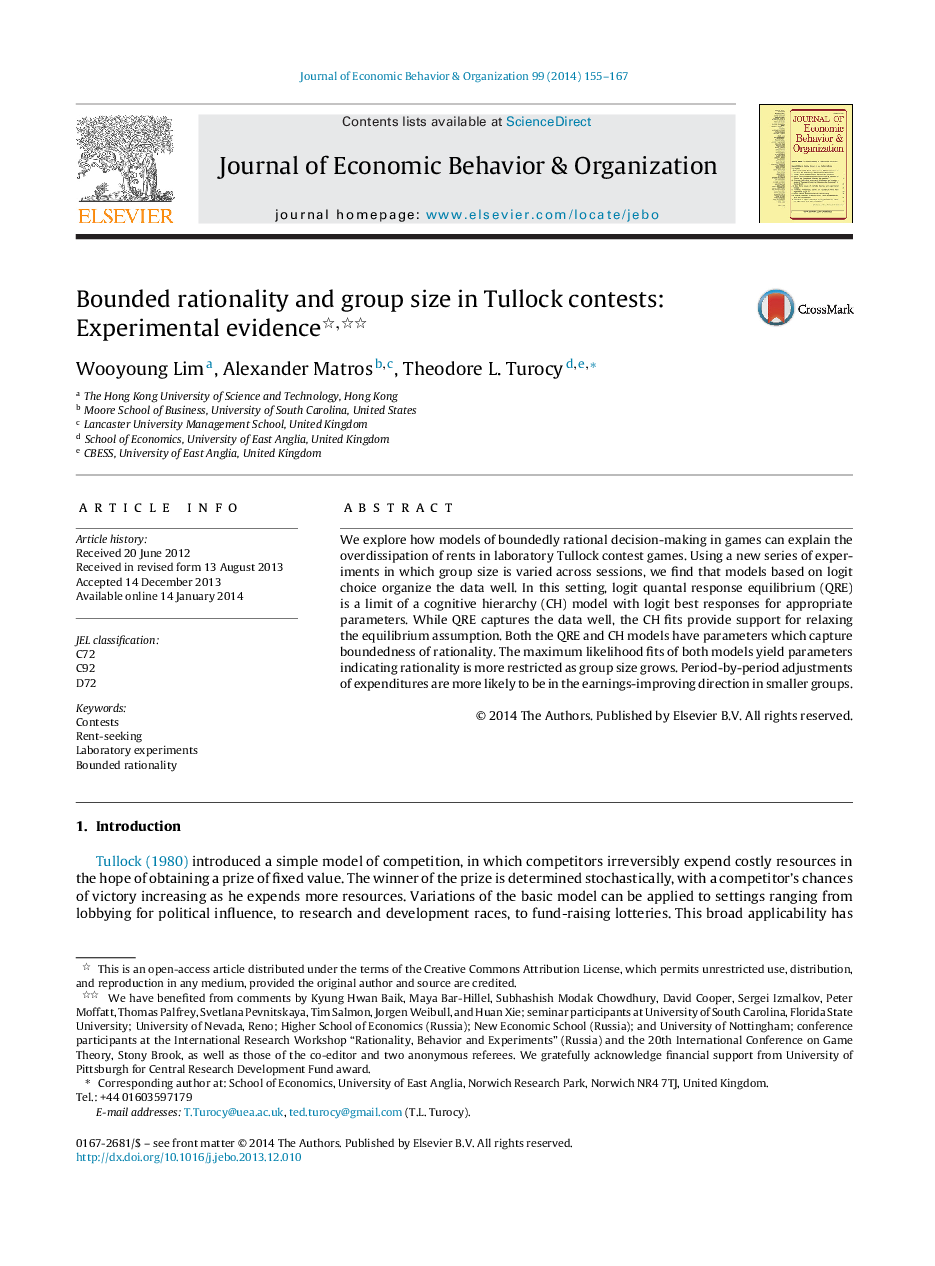| Article ID | Journal | Published Year | Pages | File Type |
|---|---|---|---|---|
| 7243597 | Journal of Economic Behavior & Organization | 2014 | 13 Pages |
Abstract
We explore how models of boundedly rational decision-making in games can explain the overdissipation of rents in laboratory Tullock contest games. Using a new series of experiments in which group size is varied across sessions, we find that models based on logit choice organize the data well. In this setting, logit quantal response equilibrium (QRE) is a limit of a cognitive hierarchy (CH) model with logit best responses for appropriate parameters. While QRE captures the data well, the CH fits provide support for relaxing the equilibrium assumption. Both the QRE and CH models have parameters which capture boundedness of rationality. The maximum likelihood fits of both models yield parameters indicating rationality is more restricted as group size grows. Period-by-period adjustments of expenditures are more likely to be in the earnings-improving direction in smaller groups.
Related Topics
Social Sciences and Humanities
Economics, Econometrics and Finance
Economics and Econometrics
Authors
Wooyoung Lim, Alexander Matros, Theodore L. Turocy,
